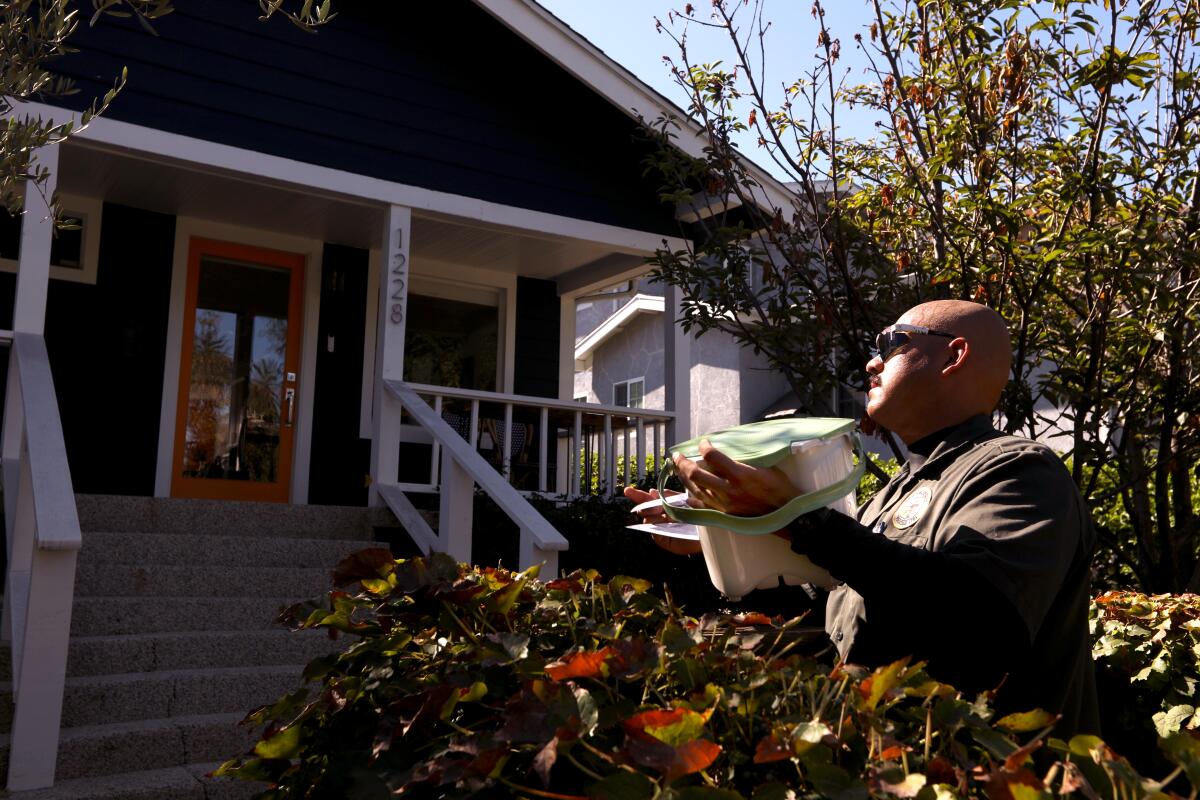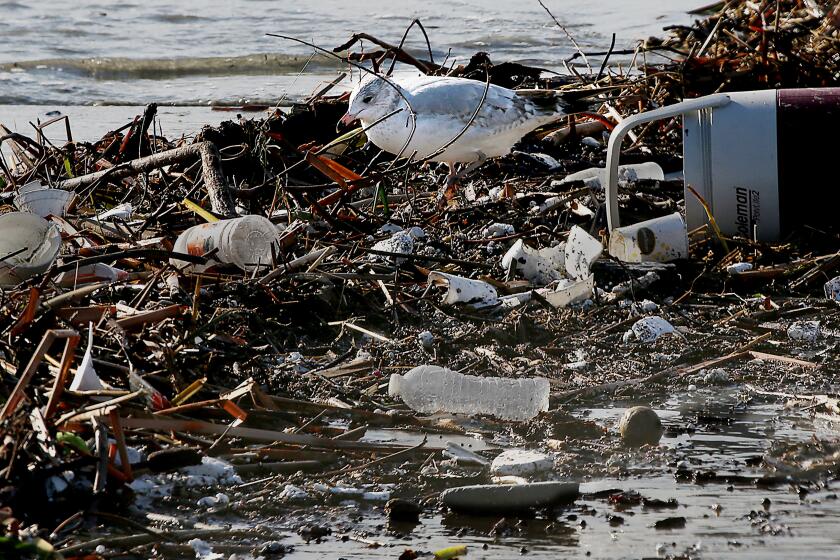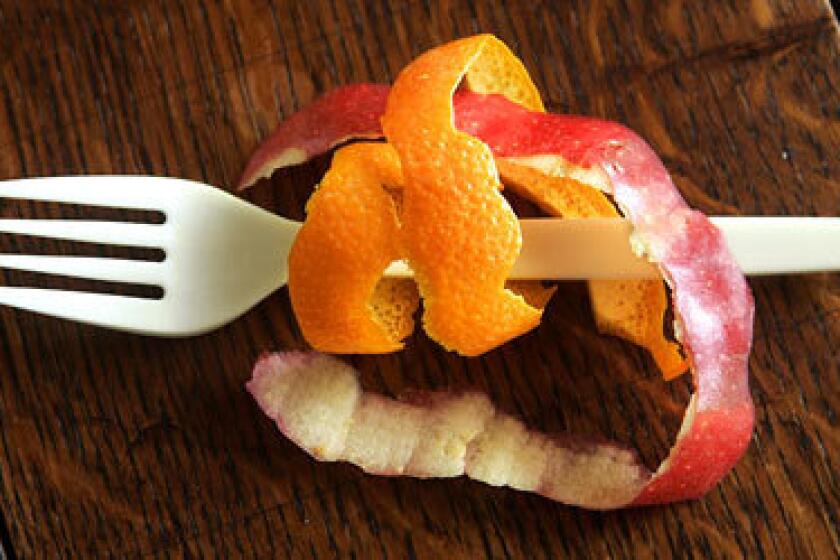Los Angeles quietly rolls out curbside composting. Maybe too quietly

- Share via
This week Los Angeles launched its long-awaited curbside composting program citywide, requiring that residents change how they dispose of food scraps. Starting now, chicken bones, orange peels, coffee grounds, pizza boxes and the like belong in green yard waste bins rather than black trash cans.
But if you failed to notice the policy shift, it’s understandable. It was a low-key rollout. The announcement was made via press release and social media posts on Monday, the Martin Luther King Jr. Day holiday, when attention to those sorts of things is low. The Los Angeles Public Works Department also sent out basic informational postcards to 710,000 households in the city that get their trash picked up by city trucks, primarily single-family houses or multifamily housing of fewer than four units, but weren’t part of the pilot. (Most apartments in L.A. are served by independent waste haulers that should be rolling out their own curbside composting programs this year.)
There is more public education planned in the City Council member newsletters, advertising on bus benches and on trash trucks and maybe some targeted home visits. Contrast this to last year when city workers — even a City Council member! — hand delivered kitchen compost pails and program brochures to 22,000 homes added to the curbside composting pilot program. It was a well-conceived strategy to inform residents about an important program.
Editorial: California is leading the nation on cutting plastic trash. But it still needs to do more
Even as California passes new laws to reduce single-use plastic trash, new sources of plastic are quickly filling the void. It’s time to shift focus.
Now everyone in the city can get free pails, but only by signing up through the L.A. Sanitation website for a pickup appointment at one of the six city yard facilities, the closest of which could be miles away. No one needs to have a city pail to compost kitchen scraps, however.
While it makes sense to do a soft opening of a massive program — we’re talking about 1,000 tons of organic waste collected every day — the city must do a harder sell in the coming months.
The organics composting program is not just a feel-good service for the residents of this environmentally minded town. Compliance isn’t optional. It’s mandatory. And if Angelenos don’t know about the program or their responsibility, how can they comply? And if they don’t comply they could eventually be fined. Yes, there are city workers who peek in trash bins to check for material that should not be in there.
In 2016, lawmakers passed Senate Bill 1383 that requires cities to divert 75% of their organic waste by the end of 2024 to reduce methane, which is a potent greenhouse gas. The composting program was supposed to begin last year, but the city fell behind because of the pandemic. L.A. wasn’t the only city to miss the deadline, but it is the largest. Food waste accounts for about 30% of the roughly 3,500 tons of material that the city sends to the landfill every day.
Feeling good about that compostable cup you bought your juice in? It’s very unlikely it is actually getting composted. Sorry
Let’s hope the communication this week is just the first notes of what will build to a crescendo of public education throughout 2023. Maybe sanitation workers don’t have to go to every house and business in this sprawling city to get the word out, but they certainly must loudly trumpet this important program.
The city also needs to be very clear about what materials are allowed in the green bin — and what is not. For example, many people are under the misapprehension that plastic products labeled “compostable” will decompose right along with carrot leaves and stale bread crusts. They can’t. Those products require higher temperatures to break down than what is generated in organic composting plants. In fact, compostable plastic can’t be recycled either, which means, for the moment, it’s just trash.
But food scraps are not trash. They are nutrient-rich organics that when properly processed could be used to improve soil and grow food. And, at last, the second-largest city in the country is prepared to do just that.
More to Read
A cure for the common opinion
Get thought-provoking perspectives with our weekly newsletter.
You may occasionally receive promotional content from the Los Angeles Times.











